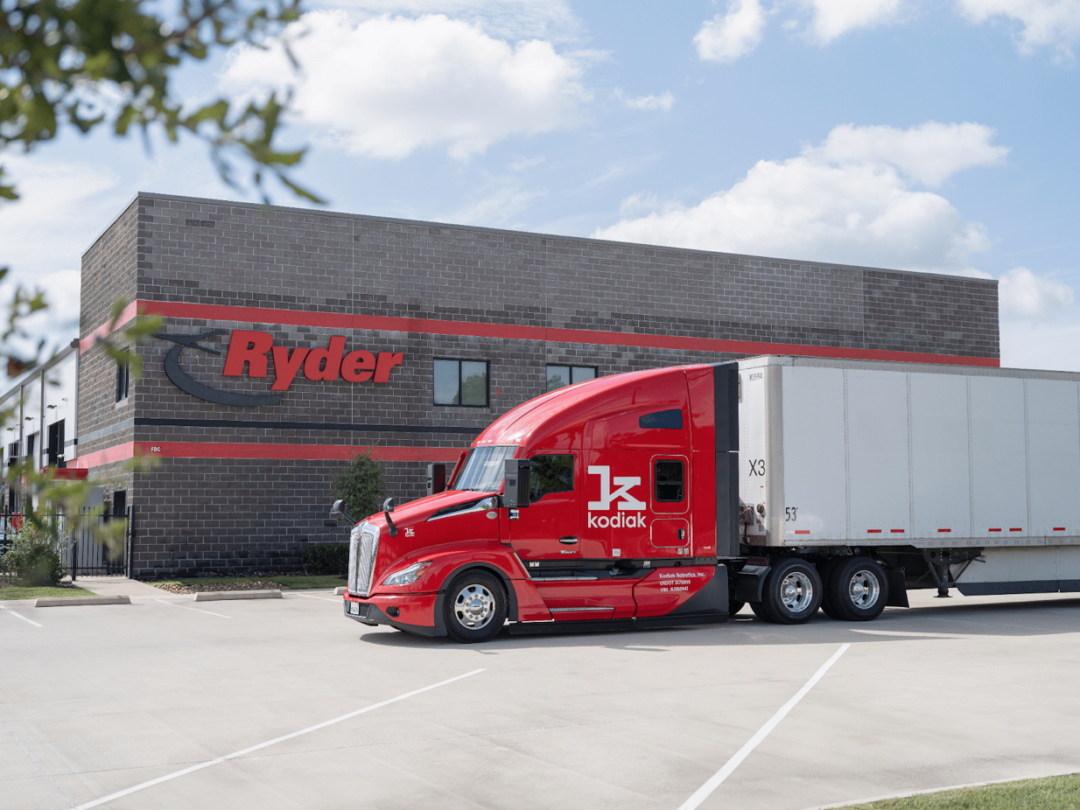Ryder and Kodiak open autonomous “truckport” in Houston
Kodiak trucks now have safety drivers, but plan to launch driverless operations on Dallas-Houston route in 2024

Transportation and supply chain service provider Ryder System Inc. today said it is collaborating with the autonomous trucking company Kodiak Robotics to enable the commercialization and scaling of self-driving trucks.
The project started in December with the opening of a “truckport” in Houston, which is located at an existing Ryder fleet maintenance facility. That site allows Kodiak to launch and land autonomous trucks as well as transfer freight to serve routes between Houston, Dallas, and Oklahoma City.
As the partnership continues, the companies see opportunity to leverage Ryder’s extensive service network to support additional truckport operations and to provide on-site technician and maintenance services.
Today, Kodiak trucks operate all routes with safety drivers, including its Houston-Dallas and Houston-Oklahoma City routes. But the autonomous trucking company plans to introduce its first driverless operations along its Dallas-Houston route later this year, using the Ryder facility as a launch point.
“Expanding our network of truckports with Ryder will enable us to operate autonomous trucks at scale with our customers,” Don Burnette, founder and CEO of Kodiak, said in a release. “Our goal is to build the elements we need for driverless operations, and having this Houston location up and running is a critical component of that plan. The Ryder facility will serve as a base to conduct testing and to validate the truckport operational model. Leveraging existing infrastructure eliminates the need for Kodiak to build and develop real estate, and it allows us to focus on launching and scaling driverless truck deployment.”
Related Articles
Copyright ©2024. All Rights ReservedDesign, CMS, Hosting & Web Development :: ePublishing